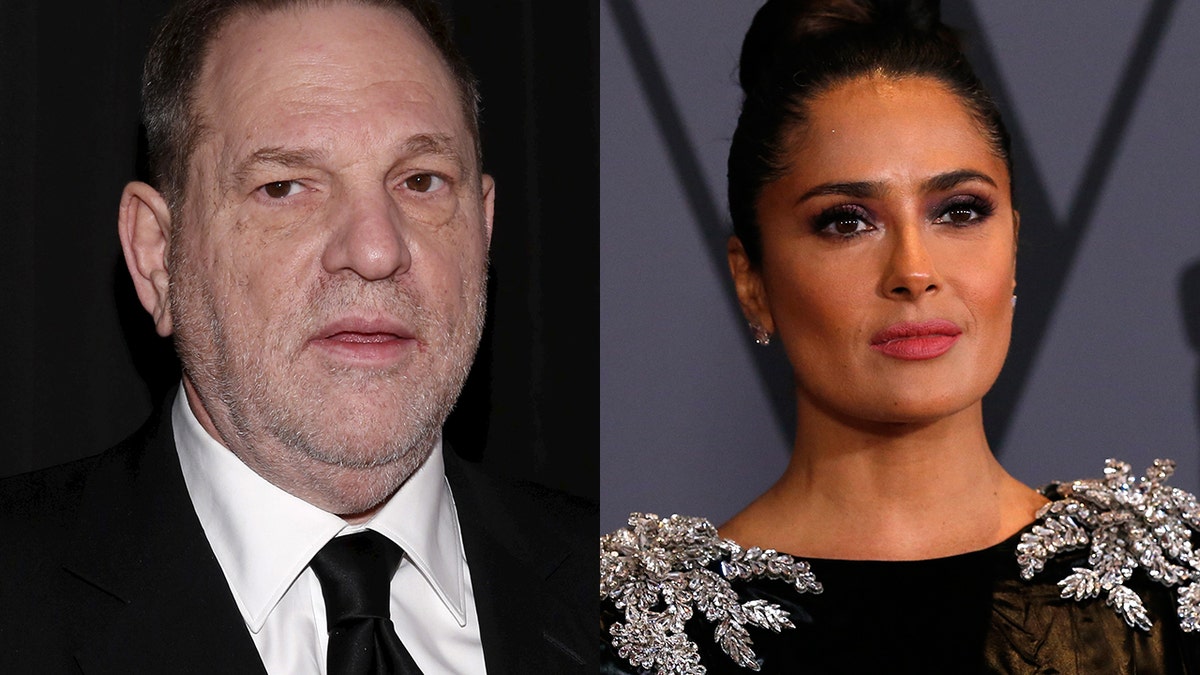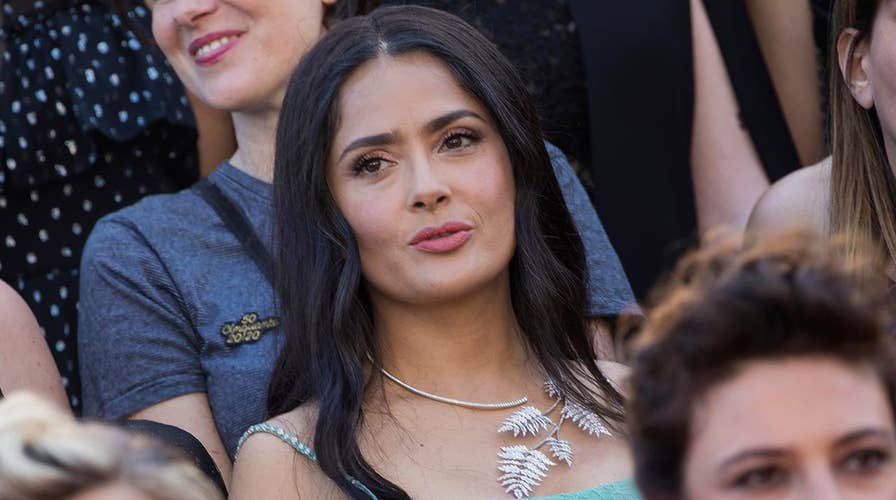Me Too movement takes center stage at Cannes
Eighty-two women, including actresses Cate Blanchett and Salma Hayek, walked the red carpet in solidarity and gathered on the stairs as part of a symbolic gesture.
Salma Hayek said she was “shocked” to learn how many women had been abused by disgraced movie mogul Harvey Weinstein during an hour-long interview on Sunday as part of the Kering Women in Motion talks. She also spoke about changes that have taken place since then in Hollywood.
Over the course of conversation moderated by Variety’s Ramin Setoodeh, Hayek talked about the power of the Me Too movement and the “meaningful” experience of taking part in a red carpet march on Saturday night at Cannes, joining 81 other women in the movie industry, including Cannes jury president Cate Blanchett, Ava DuVernay, Kristen Stewart, and Patty Jenkins, to highlight gender inequality in film.
“Personally, as a woman that has been part of this community and has had to go through the struggles that all women have had to go through, it’s an important step to see this happen,” Hayek said.
She added that the image of so many women standing side by side underscored how few have climbed the steps toward the festival’s main theater in the 71-year history of Cannes. “It looked like we were a lot, but we were such a small number.”

Salma Hayek (right) called Harvey Weinstein "my monster" in an essay last year where she detailed alleged abuse at the hand of the movie mogul on the 2002 set of "Frida." (Reuters)
Hayek published an op-ed last year where she described Weinstein’s sexual harassment toward her while making 2002’s “Frida.” Weinstein issued a statement denying those allegations, while he had not responded to dozens of other women who had come forward with stories of sexual misconduct and abuse while working on his films.
“He only responded to two women, two women of color,” Hayek said, referencing another statement Weinstein issued against Lupita Nyong’o. “It was a strategy by the lawyers, because we are the easiest to get discredited. It is a well-known fact, if you are a woman of color, people believe what you say less. So he went attacking the two women of color, in hopes that if he could discredit us, he could then maybe discredit the rest.”
Hayek said Weinstein had cast a long shadow over the industry. “The men are terrified,” she said. “The predators are hiding and terrified. You feel it. It’s a very palpable atmosphere.”
Hayek repeatedly expressed hope that the Me Too movement will offer a chance for men to reexamine their own roles, both in the film industry, and in society as a whole. “It’s a very exciting time for men now,” she said. “Men have the opportunity, which is so beautiful, to rethink what does it mean to be a man.”
Looking at the way the movement has galvanized men and women to work toward a common solution, she said, “It’s exciting, because it’s something that we are doing together.”
Over the course of her career, Hayek has seen tangible signs that the conversation around women’s equality in film has shifted, saying it was tempting to fall into the “trap” of focusing on what needs to be done without acknowledging how much has changed. “It is happening,” she said. “Maybe by seeing the gap of what should be happening that is not there, you miss out on looking at the things that are already happening.”
Hayek said there are “so many places where I can bring a Latino project now.” This year she’s sold four TV projects with two more in the pipeline, and signed a first-look deal with Lionsgate. As a producer, she said she struggles to find female writers and directors. “They’re all busy, and they are getting the opportunities.”
She counseled young women working in film to find a way to channel their frustrations about inequality and sexual harassment in the workplace by taking “what would become anger, indignation, humiliation and turn that into productivity. You have to take that feeling and get inspired by it.”
Reflecting on her many years advocating for women and Latinos, and the transformative potential of Me Too, Hayek pointed to the aftermath of the Parkland school shooting as a sign of how the fight for gender equality could effect broader social change.
“I think the movement of the students after the attack in Florida started because they saw the Me Too movement,” she said, adding that it was vocal female students who helped spark the protest. “When you start seeing people standing up for their rights and being heard, it becomes contagious.”





















